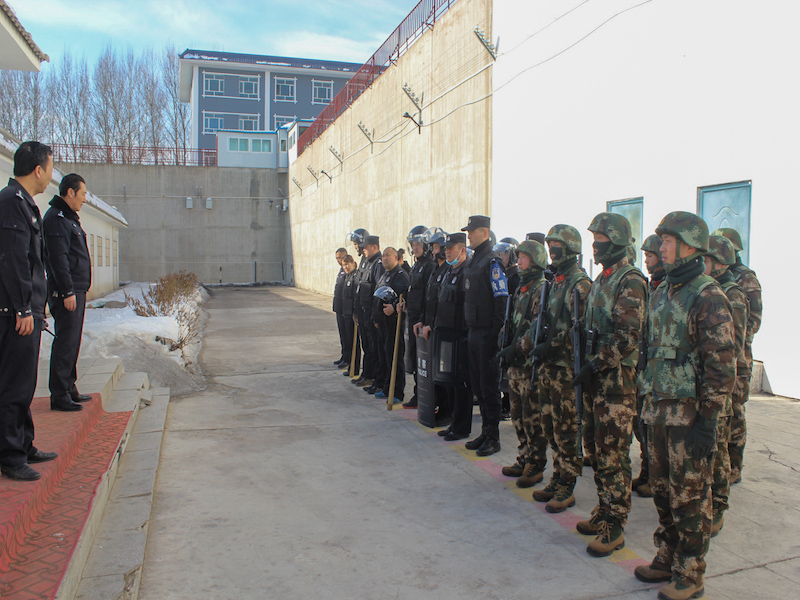Prior to May 24th, 2022, Adrian Zenz, a German anthropologist based in the United States, was a mostly unknown figure, except to scholars and policymakers concerned with China. But that day, his name was plastered on many of the world’s major newspapers. The issue that propelled him to prominence was his acquisition and leaking of what is to date the largest volume of files from Xinjiang, dubbed the Xinjiang Police Files, that reveal in detail the nature of Chinese internment camps and mass arrests in Xinjiang province. Zenz and a global conglomerate of journalists and news agencies have now laid out irrefutable evidence that what China has dubbed “voluntary re-education schools” are neither voluntary, nor for education; they are punitive organs of the Chinese state, “part of the plan to eradicate Uyghur culture.” What corporations and political leaders have often been able to dismiss as speculation in order to continue fruitful trade and investment relations with a Chinese market of over 1.4 billion has now become undeniable fact. As news of the leak spreads around the globe, media outlets across Europe and North America have expressed outrage and demanded action from political leaders.
Some of the loudest calls for a response are found in the realm of national defense and security policy. Many NATO members, and Brussels itself, are bound to reevaluate their positions in regards to China. To NATO officials, China, a state that “challenges the rules-based international order and areas relevant to alliance security,” was and remains a threat not as immediately pressing to the alliance as those directly neighboring it, particularly Russia. This is especially true for certain NATO states like Germany, which sought economic cooperation with China over strategic rivalry with it. However, on both sides of the Atlantic, there is now a shifting tide. From escalating US-China tensions under President Trump, to President Biden’s statement that there will be “long-term strategic competition with China,” to a more assertive German foreign policy, NATO is confronted with the rising threat that is China and it is likely that the release of this evidence of Beijing’s human rights abuses will be reflected in the upcoming NATO strategic concept.
While NATO is best known as a defense and security alliance, it is also a political organization committed to defending core values: the rule of law, individual liberty, democracy, and human rights, tenets enshrined in the UN Charter, which NATO has explicitly pledged to uhold. China’s actions revealed in the Xinjiang Police File leak are incompatible with such values, violating the Charter China itself is signatory to. However, taking a strong stance against the Chinese on issues of human rights is not so simple for NATO members. Many of them have benefited from a longstanding policy of cooperation with China and wilfull ignorance about alleged human rights offences. Strong economic ties ranging from joint-ventures to raw material supplies between China and many European partners mean that a decoupling strategy in regards to China, similar to one seen between Europe and Russia in the context of the Russo-Ukrainian war, seems simply unfeasable. For example, the German car manufacturer Volkswagen generates almost 40% of its revenue from the Chinese market.
Moving forward, securing supply chains within the alliance’s borders and those of friendlier states and decoupling vital industries from dependence on Chinese sources will be a necessary first step for both NATO and the EU to move toward greater strategic independence from China. Such greater freedom of maneuver is vital in preparation for the increased competition with China announced by President Biden and other key NATO leaders, from Secretary-General Stoltenberg to German Foreign Minister Baerbock. While China is pleased with the current system of economic cooperation with its European partners, and Germany in particular – a position made clear recently upon the assumption of office by the Scholz government in December 2021 – such a policy has now become increasing unpopular amongst not only the Western public, but also among senoir NATO leaders. A possible shift in the positions of corporations based in NATO countries towards China could be the first step towards decoupling and greater strategic competition. And while this may seem like a tall order, it is possible, as evidenced by Samsung, whose production of mobile phones in China ended in 2019 and more recently by the exodus of Western firms from Russia in response to its invasion of Ukraine.
Based on the shockwaves made by the release of the Xinjiang Police Files, it is liklier that NATO policy toward China will begin to take a turn. Therefore, many now eagerly await the NATO Strategic Concept that will be presented at the upcoming Madrid Summit of NATO members and how its outlook on China will position the alliance and its member states in their fight for human rights, peace, and strategic security.
Photo: Tekes Detention Center Security Drills, 2018, sourced via the Xinjiang Police Files
Disclaimer: Any views or opinions expressed in articles are solely those of the authors and do not necessarily represent the views of the NATO Association of Canada.




